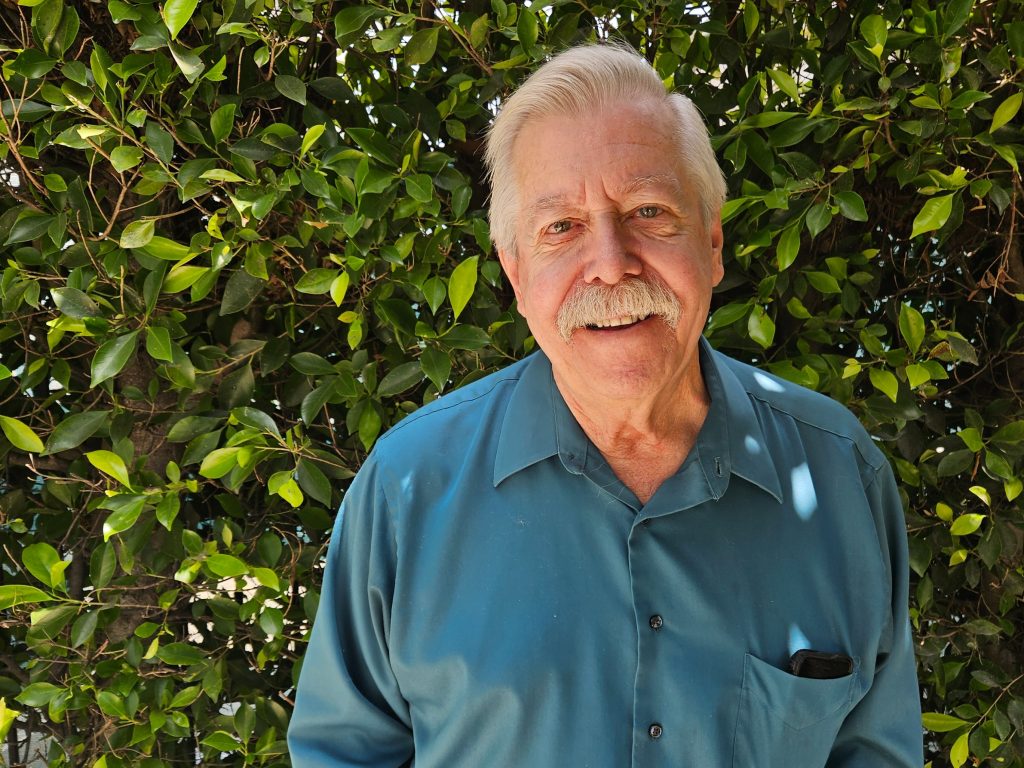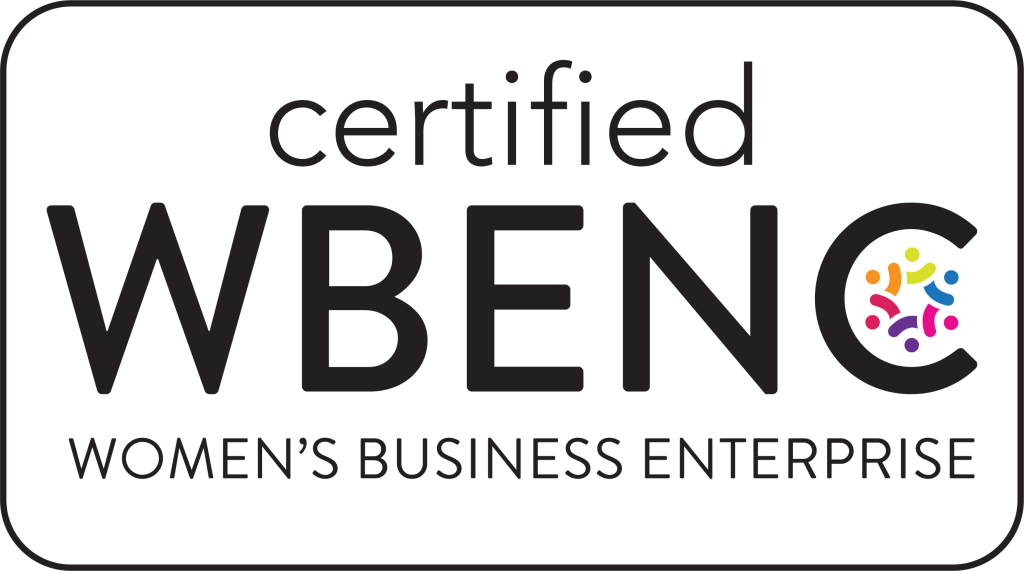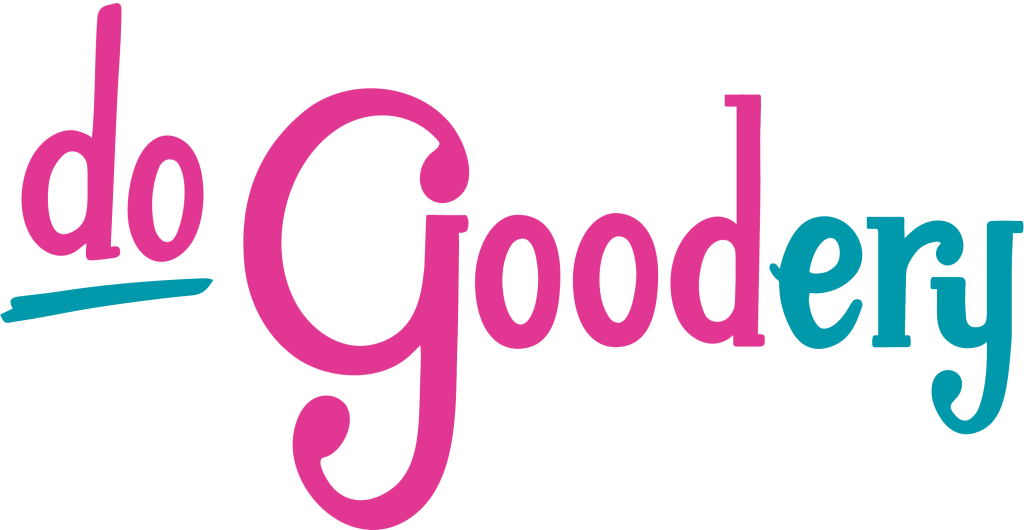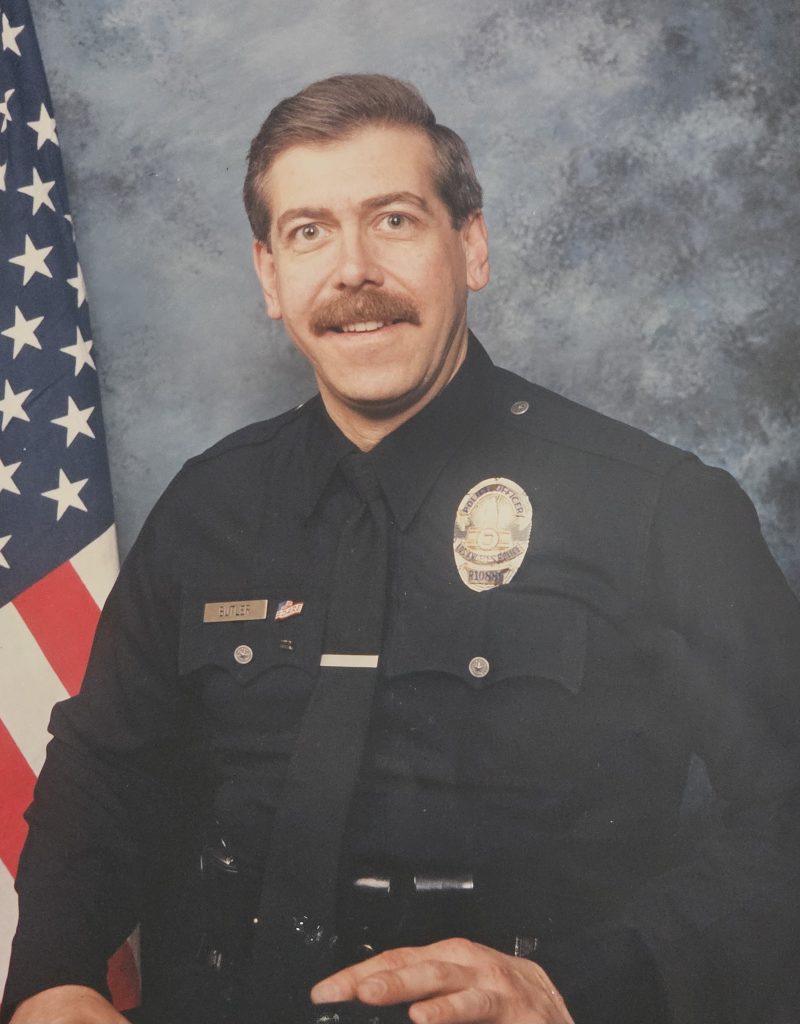
Our Interview with Paul Butler
Happy Pride Month, DoGooders!
This month, we had the pleasure of interviewing Paul Butler, who was selected by his peers to represent the first group of Los Angeles Police Department (LAPD) officers to publicly come out while serving in the department.
We are committed to being our authentic selves and encourage others to do the same. Paul’s story is a testament to the bravery in the LGBTQ+ community and the importance of living your true identity. Check out our conversation with Paul for some mid-week inspiration!
DoGoodery: Please introduce yourself and give us a brief background of your work.
Paul: My name is Paul Butler. I am now retired, but over the years I’ve worked through various industries. I was in the entertainment industry and I worked as a professional magician for a while. In the late 80s, I joined the LAPD and that’s where I was one of the first openly gay officers on the department.
DoGoodery: In honor of Pride Month, we’d love to hear the story of your life and coming out while serving in law enforcement.
Paul: I actually was working as a professional writer. I was a member of the Writers Guild and was working on some screenplays with Ralph Edwards Productions. One of them was a “Movie of the Week” about police interacting with the gang community in South Central and I did a series of ride-alongs as part of my research. I did 40 hours of ride-alongs and as part of that, it triggered the fact that I’ve always had a fantasy about being a cop. Ever since I was a kid, I had fantasized about having that as a career, but I never thought I could do it.
In 1988, the Writers Strike was going to start, and we knew we were going to be out of work for an extended period of time. I thought it was a perfect time to join the LAPD Academy, which is a paid position. I would go through the Academy and I would learn how cops are taught to think, I learned a lot about the policies, and so forth. I figured whenever the strike broke, I’d just tell them, “No, I’m not interested in this after all. I’ve decided to change my mind” and I would quit. But I got hooked on it. I actually really enjoyed the Academy experience.
There was a block of classes that we had called human relations. They were meant to teach police how they should interact with different groups, like the Black community, the Asian community, and the Hispanic community. One of the classes taught was how to interact with the Gay and Lesbian community. And I’m saying Gay and Lesbian because back then, that’s what it was. There was no BTQ+. We were strictly Gay and Lesbian, that’s what all of the classes were titled and so forth. If anybody questions why I’m not extending it to what it is today, it’s because it just didn’t exist in the curriculum when I was teaching.
So, I was actually interested to see how this would go. What I found fascinating was all of the other classes were taught by Black police officers in uniform, Asian police officers, but when we got to the Gay and Lesbian class, it was taught by civilians. They really lost credibility with our class. We had two lesbians that were teaching the class, one was a “lipstick lesbian”, who was gorgeous, and the other was in a flannel shirt and jeans. The gentleman with them was very effeminate. They were standing there demanding that they be treated with respect and that we forget all the stereotypes. But all the others in the class saw was that they were reinforcing them. When we finished the class, one of my classmates came up to me, patted me on the back and said, “Well we graduated Fag 101.” So the class was totally ineffective. I think that was a big turning point.
At that point I had kind of determined that I wanted to follow through on the Academy and that really gave me the impetus to do it. I thought that class should be taught by uniform police officers. That just irritated me so much, I really wanted to be able to start teaching that class. So I went ahead and graduated, top of my class and I was class valedictorian. I worked out of Hollywood station and did that for over a year. I received some high honors, including Officer of the Year, my first year in. Then, I contacted the Gay and Lesbian Police Advisory Task Force, which was a civilian group that was working to create better relations between the department and the Gay community. They had been waiting for somebody willing to come out and there was also a group of gay cops that were meeting very, very secretly. We discussed it amongst ourselves and we decided that the time was right. There had been incidents of gay harassment with police officers, the most notable being Mitch Grobeson, who was an LAPD sergeant. He had been outed by an LA County Deputy Sheriff, who saw him coming out of a gay bar. Once he was outed, he tried denying it, but eventually his partners harassed him to the point where he had to quit. He proceeded to sue the department and that was making press at the same time that we were getting ready to come out.
Because the department was already involved in the class action lawsuit, it was kind of good timing for us. We voted among ourselves and I was selected to meet with the commander of West Bureau, Bob Vernon, who was also the liaison for the Gay and Lesbian community. We met privately and explained that the Gay and Lesbian Task Force had a booth at the Christopher Street West Festival in West Hollywood and that we wanted to be there representing the department in uniform. He said that was way overdue for the LAPD and he was in total alignment with us, but he couldn’t make that decision. It had to go up the chain of command, which is what we wanted to do. So it was submitted to the Chief. Chief Gates had already said that he would never allow gay officers to exist on the LAPD and so the fact that we were coming out was in defiance of his edict. But circumstances in the press dictated that he really didn’t have a choice. He agreed to let us appear one time. The reaction from the media and from the public was so overwhelming that the Police Commission and City Council ordered him to allow us to continue recruiting in the community. Being a good soldier, he said that as long as it wasn’t his decision, he would allow it.
That turned the page. We started recruiting at the Sunset Junction Street Fair in Hollywood. We went to Long Beach Pride and Orange County Pride, and it became a regular thing that we were recruiting. Within a year, we were invited to actually join the training detail at the Academy, and we became instructors at the Academy. So we were actually able to talk to every recruit coming in. We also did in-service training for the old timers who had been around for a while, and we got to give them our experience. The fact that we were kind of breaking the stereotypes and the fact that we were among them, I think it terrified some, and others were all behind us, but it was actually in retrospect a very positive experience.
The recruits, they’re kind of pliable, they’ll go along with whatever you tell them. I did feel some sympathy for the old timers because as recently as the 70s, it was a felony to be gay in the state of California. To turn it around and say a decade ago, we were felons and now you’re supposed to embrace us and welcome us and partner with us, that was hard for some of them to deal with. We explained to every class we taught at the Academy, especially for officers who didn’t agree with what we were teaching, that, “We aren’t trying to change anyone’s morals or core beliefs, but we’re simply trying to teach what is acceptable and unacceptable behavior, while wearing the uniform and badge of the LAPD.” But, there were times when I would come home to death threats on my phone mate. Drunk cops had called me and said, “Don’t be surprised if the next time you’re qualifying on the shooting range, there’s friendly fire in your field.” Other officers also received some death threats along the way and we reported those to Internal Affairs. We did take precautions before we came out. We had met with ACLU attorneys, LA City Council, and the County Board of Supervisors. We told them, “In June we’re going to be coming out, so if you find our body floating in a river, it wasn’t an accident. Please investigate.” We felt like we had done our due diligence to protect ourselves and then, the overall reaction was actually very positive
I had very few people who didn’t want to work with me. There was one sergeant who treated me differently. He just wasn’t friendly anymore. He treated me professionally, but he certainly wasn’t joking around and all. It was strictly business and get out of my face.
There was one partner in particular who I really liked. He was about a 6’6” redheaded ex-marine who served in Vietnam. I liked working with him because he intimidated people. We were partnered regularly, but suddenly, I didn’t exist. We would see each other in the hallway and he would walk by me like I was invisible. That hurt. It was not what I hoped for, but I let it go. Maybe a month and a half or two months after I came out, I was loading my car at the beginning of my shift. He was unloading from the shift ahead of mine. So we were in the parking lot together alone. And he walked over to me and he said:
“Picture this, Butler. I’m on Catalina with my wife and kids. We’re vacationing and I turn on the TV to see what part of the world fell off today. And there’s my partner on TV going, ‘Yo world I’m gay.’ You know, I did three tours of Vietnam and what you just did a couple months ago was more brave than anything I ever did. If anybody screws with you, you come to me and I will see to it that it ends. And if you tell anyone we had this conversation, I will kill you.”
It was guilt by association. Back then, if you were friends with gay people there was a good chance you were gay, or that was the assumption. But suddenly, everything was fine. We would chat in the hallway and he realized I wasn’t doing this for any other reason other than it was for the good of the community.
DoGoodery: Are there any interesting stories during that time as a training educator?
Paul: We were teaching basically one class a month back then and it was a busy time at the Academy. But when I went through the class in the late 80s, it was taught by civilians. One of the things they asked our class was, “Do any of you know someone who is gay or lesbian?” Out of my class of 60 cadets, two of us raised our hands. Irma, a woman in our class, explained that she worked in a parking lot in Downtown LA. She thought this Hispanic woman that worked with her was gay because she lived with a woman. That was her experience. They got to me and I didn’t get into details, but I said, “Yeah, I worked in the entertainment industry. I know lots of people who are gay and lesbian. I’ve never had an issue with it.” They just accepted that and we kind of dropped it.
One of my favorite moments teaching the class was probably about ‘95 or ‘96. We came out in June ‘91, so about 4 or 5 years later. It took us a couple of years to get into the Academy and rework the curriculum so it could be taught by officers rather than civilians. So, I asked, “Does anyone have friends or relatives or do they know someone who is gay or lesbian?” Everyone in the class went, “Well, Rodney.” One of their classmates had come out to them about two weeks earlier to ask if he could bring his boyfriend to their Christmas party. It was wonderful to see the progress that had been made. By the time I retired in 2001, it was just commonplace. Amazing what a decade will do.
Another time, a training officer had called off sick, so I was assigned to be this rookie’s training officer for the day. We didn’t work together regularly. I had to be out by that time but not everybody knew and obviously, his training officer had not pointed me out specifically. I worked in the division for so long that it was not a big issue to anybody and I don’t think he ever even thought that he had to warn the rookie. I was the substitute teacher for the day. Just like kids think they can get away with murder because it’s a sub, rookies think they can get away with stuff because they think they’re not being graded. They don’t realize we still have to put in a training sheet on them every day. Anyway, I let him drive while I was doing the books. I was writing something down and all of a sudden he goes, “I’m pulling this person over.” I looked up and it was just a car driving down the street.
I said, “Okay, what’s your PC, probable cause for the stop?”
He said, “He just blew the red light. He came right around the corner and didn’t even tap his brakes.” Okay, that’s legit, I didn’t see it myself. Something that people don’t realize is that police talk about whether they’re going to give a ticket or just a warning if we don’t want to waste time. Before the rookie got out of the car, he said, “I’m giving him a ticket.” I didn’t really think a lot about it, but we did the approach and he got the license. After we got into the car, I asked why he was so adamant about giving a ticket.
He goes, “Because he’s a fag.” I was kind of taken back. He continued, “He’s got a rainbow bumper sticker. And we learned in the Academy that if they have a rainbow bumper sticker or anything rainbow, that means they’re fags.”
I said, “Okay, so that’s why you’re giving him the ticket?”
He said, “Absolutely.” I let him complete the ticket. I mean, he had a legitimate traffic stop.
But once he was in the car, I explained to him, “That’s really not a good motivation for giving tickets. And in fact, the man owns a Macintosh computer.” Mac, back then, had little bumper stickers that were rainbow colored and it was the shape of an apple. “Not every rainbow is gay.” Then, I proceeded to go back to the station and write him up for breaking basic rules. He was enforcing the laws under prejudice and he did not make it through probation. His training officer thanked me after he read my report. He said that they had been piling up stuff on this guy and that this was the breaking point. All they needed was an absolute violation. The rookie failed probation and was not allowed to become a full-time LAPD officer.
DoGoodery: How have you seen the gay experience change over the years?
Paul: From the time I was in high school, when it was a felony to commit a homosexual act in the state of California, to a point where now basically everyone knows people who are gay and lesbian, it’s like there’s a universal acceptance in the world that we never dreamed we would see in our lifetimes. The fact that there’s gay marriage. These are things that we dreamed of and said, “It would be great if in a generation or two they could accomplish this.” And when we started coming out as police officers, we thought it was going to take a decade or two, maybe a couple of generations before we could integrate to the point that we did. We did that in about five years. To have gay liaisons, full-time officers who do nothing but work within the Gay and Lesbian community, that’s their total job description, is remarkable.
When I was first acknowledging my sexual orientation, it was a time where the first thought was, “It’s time to seek therapy. You have to cure this.” There were people who said, “We can cure you,” and we tried it and it didn’t work. That was the norm back then. Even if you came out to a psychotherapist, they would suggest reparative therapy. It’s been a remarkable journey, and the progress that the community has made is just mind-blowing for us.
DoGoodery: Can you share some words of wisdom to the next generation about being your authentic self amongst adversity?
Paul: I’ll give you words, you can decide how wise they are [laughs].
Don’t underestimate yourself. When I joined the department, I didn’t think I was going to make it through the Academy. I honestly didn’t. The fact that I made it through the Academy for me was a major, major success. And the fact that I would be able to do what I did within the Gay community as a police officer, I kind of dreamed of it, but I never thought it would happen. So don’t limit your imagination, let the dreams fly, and then hopefully they’ll work out. We didn’t get everything we wanted right away. It took time. I think I would have really underestimated myself and wouldn’t have even tried to do some of the things that I did if it weren’t for the circumstances working out. Going to the Police Academy was never on my agenda until we had a strike. Everything just timed out perfectly for me to make a career change. So, I would suggest that everybody should give themselves the advantage of imagination and believe you can do it.
I never thought any of this was going to be possible, let alone that it would be me. I would have been rooting for other cops to come out and do it and I would have supported them. The fact that I was able to be one of them was something that I’d never, never imagined. At the time, we did it because we thought it was the right thing to do. It was time. There had been gay cops for almost a decade in New York City, in San Francisco, obviously. They had gay cops in the south, in Atlanta, before LA did so it was just a matter of waiting for the right timing. Of course there was some fear when we first came out, but in the long run we had the department behind us. We had the city behind us.
DoGoodery: What are you up to now? Do you have any final thoughts to share?
Paul: I’m retired, happily retired. I’m just living a very quiet life now.
If there were one thing I would say, if someone is hearing this message and they’ve ever thought about becoming a cop, check it out. There is an ongoing problem with a lack of good recruits and so I would tell people that if you’ve ever considered it, even if you don’t think you can make it, give it a try. LAPD is consistently out recruiting in the community. I did recruitment for a long time and I would encourage people to enroll. If you ever dreamt of being a cop and you put it on the back burner like I did for years saying, “No I can’t possibly do this,” don’t underestimate yourself.
Stay in the loop!
DoGoodery LLC
1370 N St. Andrews Pl,
Suite B19
Los Angeles, CA
90028
hello@dogoodery.com


